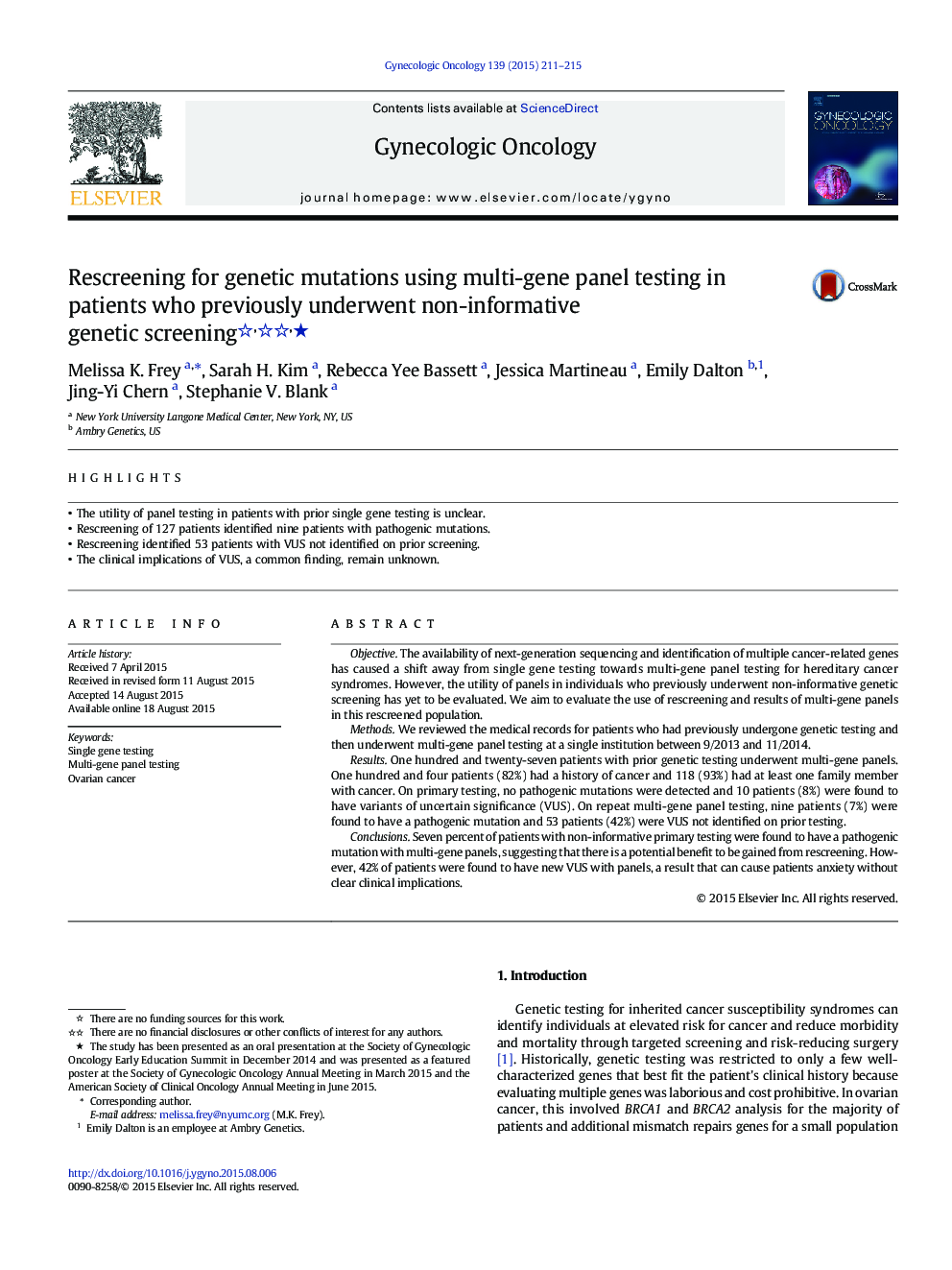| Article ID | Journal | Published Year | Pages | File Type |
|---|---|---|---|---|
| 3943047 | Gynecologic Oncology | 2015 | 5 Pages |
•The utility of panel testing in patients with prior single gene testing is unclear.•Rescreening of 127 patients identified nine patients with pathogenic mutations.•Rescreening identified 53 patients with VUS not identified on prior screening.•The clinical implications of VUS, a common finding, remain unknown.
ObjectiveThe availability of next-generation sequencing and identification of multiple cancer-related genes has caused a shift away from single gene testing towards multi-gene panel testing for hereditary cancer syndromes. However, the utility of panels in individuals who previously underwent non-informative genetic screening has yet to be evaluated. We aim to evaluate the use of rescreening and results of multi-gene panels in this rescreened population.MethodsWe reviewed the medical records for patients who had previously undergone genetic testing and then underwent multi-gene panel testing at a single institution between 9/2013 and 11/2014.ResultsOne hundred and twenty-seven patients with prior genetic testing underwent multi-gene panels. One hundred and four patients (82%) had a history of cancer and 118 (93%) had at least one family member with cancer. On primary testing, no pathogenic mutations were detected and 10 patients (8%) were found to have variants of uncertain significance (VUS). On repeat multi-gene panel testing, nine patients (7%) were found to have a pathogenic mutation and 53 patients (42%) were VUS not identified on prior testing.ConclusionsSeven percent of patients with non-informative primary testing were found to have a pathogenic mutation with multi-gene panels, suggesting that there is a potential benefit to be gained from rescreening. However, 42% of patients were found to have new VUS with panels, a result that can cause patients anxiety without clear clinical implications.
